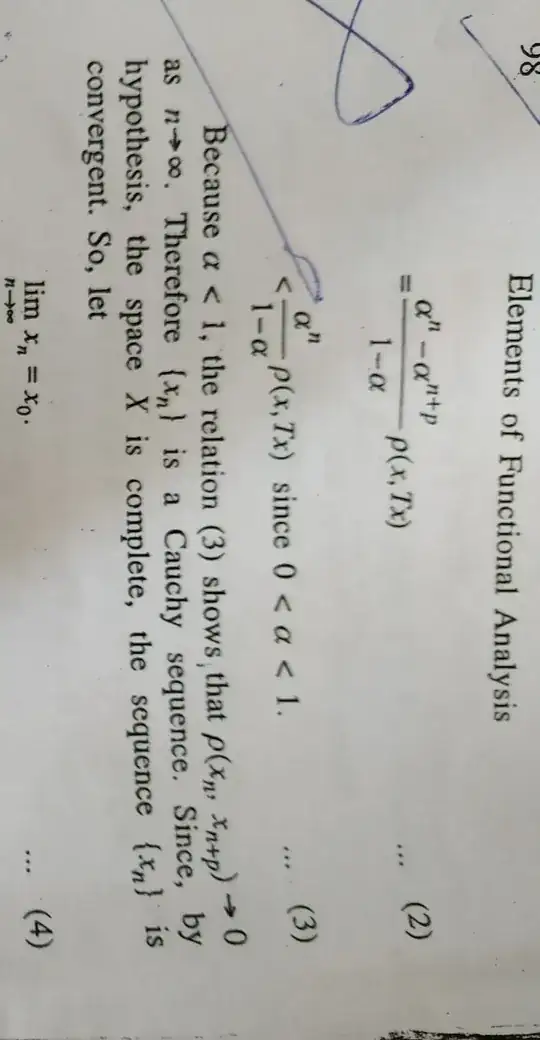I saw a proof in a fixed point theorem which showed that d(xn,xn+p) is 0 as n goes to infinity hence the sequence is cauchy. using triangle inequality if d(xn,xn+p) less than equal to d(xn,xn+1)+d(xn+1,xn+2)+....+d(xn+p-1,xn+p) And since each of these terms tend to 0 as n tends to infinity then that implies d(xn,xn+p) tends to 0 .Therefore,sequence is cauchy.
Am i missing a condition here?
